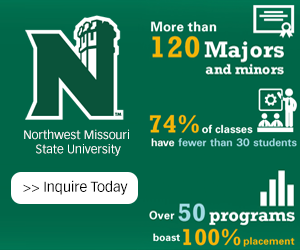Moving from one country to another is a big adjustment for anyone. For those coming to the United States as students, learning the ins and outs of a foreign educational system presents even more challenges. To help you get a handle on it all, here is a breakdown of the various levels of broadcasting education available in the US.
The United States offers a wide variety of levels of higher education. From certificates to bachelor's degrees to doctorates, the range can be daunting. Thankfully, the choices available to international students wondering how to study broadcasting in the US are somewhat more limited than the sum total of all postsecondary educational options in the country. Let's explore the kinds of programs available to those pursuing an education in broadcasting.
Certificates
The shortest and most focused option for international students pursuing an education in broadcasting is to get a certificate. Certificate programs take less than a year and are fully focused on training students for a certain trade or skill. Career schools offer intensive programs that provide students with a strong broadcasting education and actual work experience to prepare them to land their first broadcasting gig, all for less time and money than most other options.
Associate Degrees
Th next option for international students studying broadcating in the US is the associate degree. Clocking in at an average two years, an associate degree in broadcasting is merely a stripped-down bachelor's degree, with some of the broadcasting classes and much of the wider liberal arts education omitted. For international students wondering how to study broadcasting and uninterested in a traditional four-year education, the associate's degree is a great option. It works particularly well for those geared towards the technical side of the industry, since a wide-ranging education doesn't really help job prospects in that area. Students interested in those broadcasting careers that do demand a strong all-around knowledge can still get their start with an associate degree, though it would be recommended that they further pursue a broadening knowledge base through their own interests and reading.
Bachelor's Degrees
The most traditional type of postsecondary program in the U.S. is a bachelor's degree. Usually completed in four years (though this length can vary a few years in either direction) and known colloquially as “undergraduate” education, a bachelor's degree offers international students a thorough study of a certain field complemented by a basic review of courses covering liberal arts. The two types of bachelor's degrees available to those pursuing an education in broadcasting are a Bachelor of Arts (BA) and Bachelor of Science (BS). While mostly interchangeable, BS programs are known to focus slightly more intensely on the chosen course of study while BA programs lean towards a broader education in the liberal arts.
A bachelor's degree isn't the right thing for all international students who wish to study broadcasting. The greatest advantage of a bachelor's degree over other programs covered below is its wide education, and this won't appeal to or even be necessary for everyone interested in broadcasting. The thorough study of liberal arts provided by a BA or BS is most vital for the creative and executive positions in the broadcasting industry, such as writers, on-air personalities, and producers. For these people, who must discover and interpret stories across topics as diverse as government, entertainment, science, and more, a wide range of knowledge is necessary simply to function in their position. For others, such as those interested in the technical side of broadcasting, this broad understanding is not as important and may not even be a wise use of time and money.
Graduate Degrees
A Bachelor's degree is almost always a prerequisite for “graduate” education, which consists of Master's degrees and doctorates. A Master's degree is typically offered in the US as a Master of Arts or Master of Science, and less commonly as a Master of Letters or Master of Philosophy. The only doctorate that pertains to broadcasting is a PhD. All of these degrees represent a very advanced level of education, and are usually preserved for those who want to work in an academic or theoretical capacity – teachers, mass media experts, etc. – or those in management. A graduate education is neither necessary nor common for those working jobs within actual broadcasting.
Certificates, Associate degrees, Bachelor's degrees, and graduate degrees cover just about all the possible levels of education in broadcasting in the United States. Now that you have a handle on this important choice, check out the types of schools to study broadcasting for a similar breakdown of the types of postsecondary institutions you'll find in the US.

